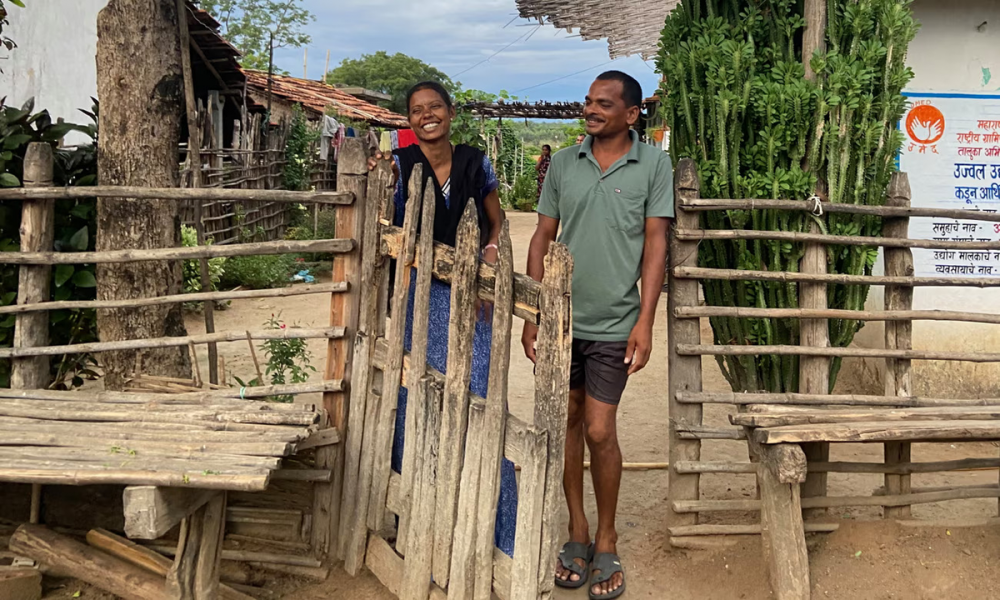
Knowledge | Posted by Zarni Kyaw
It’s late morning and the sound of axes clacking against wood echoes through Pachgaon’s bamboo forest in the central Indian state of Maharashtra.
A huge depot, larger than a cricket stadium, is full of bamboo branches, stacked neatly by size in different sections.
Nearby is a small, windowless office painted in the colours of the forest – a record-keeper of Pachgaon’s turnaround from abject poverty to relative wealth in just over a decade.
Pachgaon’s rags-to-riches story follows the implementation of two longstanding Indian laws that restored to the local adivasi (tribal) community its traditional ownership rights over the forest, which they lost to rulers and colonisers several generations ago.

(Pachgaon’s bamboo depot reflects the remarkable prosperity that the forest has brought the village)
Under the laws – the Forest Rights Act 2006, and the Panchayat (Extension to Scheduled Areas) Act 1996 – tribal village councils, or panchayats, can apply for “community forest rights papers”, or title deeds to designated forest resources, and constitute their own gram sabhas (village assemblies) to take decisions on governance and the marketing of the fruit, seeds, herbs and trees that they harvest and cut in the forest.
The village’s bamboo business made a profit of 3.7m rupees (£35,000) in the last financial year and a total of 34m rupees in the past decade.
"Earlier, the forest was with the forest department, but now it is with us.
We have formulated 115 rules on how to expand it, nurture it and protect it,” says Sanjay Gajanan Gopanwar, a gram sabha member.
Pachgaon is a small village of about 300 people, many of them from the Gond community, one of India’s largest tribes. “People here are largely landless and depend on the jungle for their living,” says Gopanwar.

(Sanjay Gajanan Gopanwar, a member of Pachgaon’s gram sabha, shows details of the forest rights displayed at the entrance to the village)

(Villagers walk to the forest to cut bamboo. The Pachgaon business is very egalitarian, with no chair or secretary)
Records show that the village sold 8,100 bamboo bundles for about 700,000 rupees in 2013, the first year of its business. The next year, it sold more than 17,000 bundles; this time fetching revenue of 2.7m rupees.

(Vinod Ramswaroop Tekam and his wife, Sangita, at work in Pachgaon’s bamboo forest. The work earns them more than twice as much as most villagers used to earn as migrant day labourers)

(A shrine for a local goddess in a grove in the bamboo forest)
Ref: India Law Allows Villagers to Claim 2000 Acres of Bamboo Forest to Turn Poverty into Prosperity









